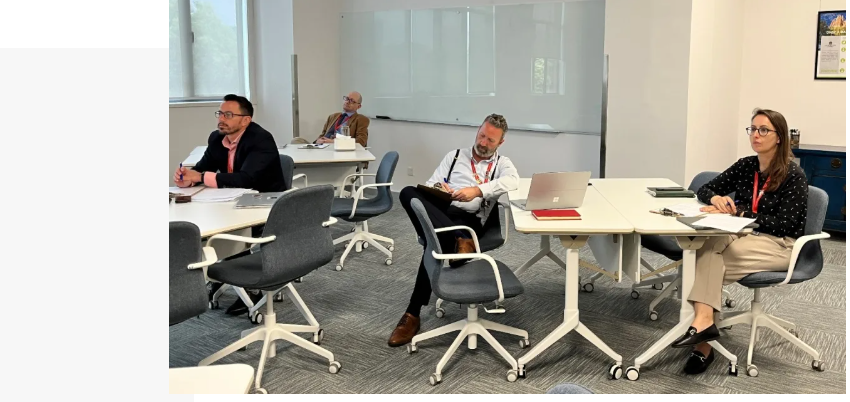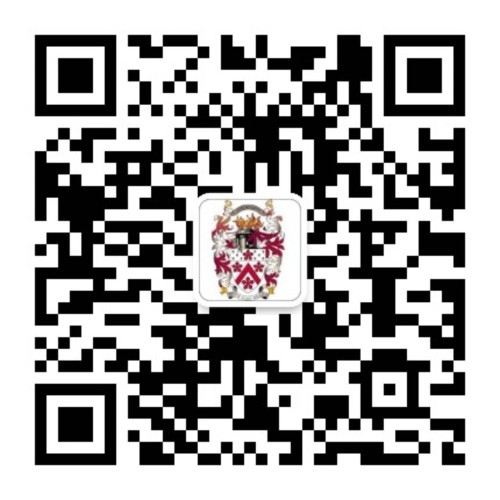How DHSZ EPQ Redefining Learning
What happens when research topics are mass-produced into “academic products” and thesis frameworks are reduced to fill-in-the-blank templates? How do we preserve the true essence of scholarly inquiry?
At our school, a group of students in the EPQ (Extended Project Qualification) programme are redefining the boundaries of “learning.” They:
Analyse the hidden relationship between football clubs’ performance and their commercial value, unlocking the secrets of sports economics; Use neuroscience experiments to trace how dreams influence adolescent emotions; Challenge the stereotype that “men are better investors,” and demonstrate through data the long-term advantage of female investors…
It is precisely these immeasurable leaps in thinking that reveal the real value of research-based learning. Today, our EPQ lead teacher, Ms Jessica Law, will share how, while most courses focus on “what the research produces,” we instead guide every student to experience the transformation from “learner” to “researcher.”
A Learning Journey Beyond Outcomes
The heart of EPQ lies in granting students the freedom to explore and grow autonomously—an approach that contrasts sharply with traditional lessons, which centre on “teacher talks, students listen.” As Ms Law emphasises:
“EPQ is student-centred. There are no predetermined answers. Students construct their own knowledge frameworks by tackling real-world problems, cultivating both innovative and critical thinking, and shifting from passive reception to active investigation.”
Here, every project begins with genuine curiosity—whether it’s exploring the future of China’s rock music or conducting a commercial analysis of football. Each topic reflects a thoughtful exchange between student and scholarship.

Process Over Product
In our EPQ journey, the most precious outcome is not the completed dissertation or the final defence presentation, but rather the evolution of thinking itself. The ethos that “process outweighs product” permeates every stage.
Three group seminars kick off each project. Through questions such as “Can you think of counter-examples to your hypothesis?” and “How will you validate your conclusion?”, mentors help students turn vague interests into viable academic questions.
When confronted with conflicting viewpoints, mentors guide students to trace the origins of each theory, assess the reliability of data-collection methods, and engage in reasoned debate—fostering independent, evidence-based judgment.
Rather than supplying answers, mentors map out pathways of thought. This “build-your-own-thinking” philosophy starkly contrasts with one-size-fits-all programmes that hand out topics and resources, promoting a leap from mere task completion to genuine depth of inquiry.

While guiding students in "continuously delving deeper into research topics", Ms Law observed their most significant cognitive shift as "moving from linear thinking to multi-dimensional critical analysis". A particularly notable case involved a student researching whether gender differences manifest in financial investment outcomes. Initially subscribing to the common stereotype that "male superiority in STEM-oriented thinking grants boys an advantage in investment capabilities", the student hypothesised males would demonstrate greater proficiency. However, through systematic literature reviews and rigorous data analysis spanning diverse age groups and investment experience brackets, the research ultimately revealed that female investors generally achieved higher returns. This process exemplified how students transcended preconceived notions by grounding conclusions in empirical evidence, thereby overcoming subjective assumptions and expanding the boundaries of their cognitive understanding.

A Dress Rehearsal for University Study
The skills honed through EPQ serve students well beyond class, enabling them to excel at the world’s top universities:
- Independent Research Skills: Mastery of the entire research cycle—from sourcing materials and planning methodologies to literature searches and data analysis.
- Time and Project Management: Competency in juggling multiple tasks, prioritising effectively, and maintaining productivity.
- Collaboration and Academic Integrity: Confidence in group discussions, presentations, and scholarly writing.
As Ms Law puts it, “EPQ is fundamentally about exploring the unknown and challenging oneself.” This year’s topics span investment disparities, dreams and emotions, rock-music industry trends, and the commercial value of football—each reflecting students’ eagerness to delve deeply and adopt interdisciplinary perspectives. At their final defences, even the toughest questions from examiners are met with composed, articulate responses, showcasing the academic confidence forged by EPQ.
#From the Students
Amelia W Y12
I’m thrilled to have finally completed such a significant project. Over the past two years in the EPQ programme, I’ve learnt so much—how to overcome my own inertia by reading extensively, and how to refine my draft step by step. Looking back on all I’ve achieved, I realise I’ve surmounted countless unexpected challenges.
The greatest gift EPQ has given me is a deeper understanding of myself. I discovered that sometimes you have to push yourself hard in order to keep moving forward. If I hadn’t been tough on myself, I wouldn’t have finished the project on schedule. I’m also incredibly grateful to my mentor, Ms Law, for devoting so much time and thought to keep me on track and support me every step of the way.
All in all, EPQ has been a novel and immensely rewarding experience. I feel lucky to have embarked on this journey during my high-school years!
Kevin S Y12
Completing the EPQ was a journey that was both challenging and rewarding. During the process, I not only faced many difficulties but also learned how to think independently and solve problems. The greatest gain that I got was a deeper understanding of myself and learned how to remain calm and persevere when facing difficulties. This experience has made me more confident and better prepared for future challenges. I am proud of myself for being able to complete this project and I’m grateful for the growth during the process.
Michael L Y12
Doing EPQ has strengthened my ability to look for and identify information. It’s great to search for essays and locate the data to make my essays more convincing. This is very important as when I’m going to write a paper in university, doing the EPQ will be a very good experience. What’s more, this project also develops my ability to think independently. In the past, my perspective was easily influenced by others’ opinions, but through delving into research and seeking out credible information, I gained a more profound understanding of complex topics.
Roey H Y12
The EPQ significantly improved my research and critical thinking skills, enabling me to analyze problems from various angles. I learned to assess sources, build compelling arguments, and effectively communicate my findings. Additionally, the project enhanced my time management skills, allowing me to juggle multiple tasks and meet deadlines. Beyond academic growth, the EPQ strengthened my ambition to pursue a career in business and management. It offered valuable insights into the industry and deepened my passion for this field, providing a solid foundation for my future studies and career goals.
A Guide for Future Applicants
For those considering EPQ, Ms Law advises:
“Explore widely—read across subjects, attend talks, engage in hands-on activities—to discover what truly fascinates you. Genuine interest will sustain you through the EPQ journey.”
If there is one word that encapsulates the ideal EPQ learner, it is “bold explorer”—someone driven by curiosity, hungry for knowledge, and unafraid to step beyond their comfort zone.
At DHSZ, EPQ is more than an academic CCA; it is a comprehensive cultivation of thought and ability. There are no “standard answers,” only repeated opportunities to begin with a question and embark on independent inquiry. We look forward to welcoming more students into EPQ—our community of “bold explorers”—as they set off on their voyage of deep learning and innovation.






